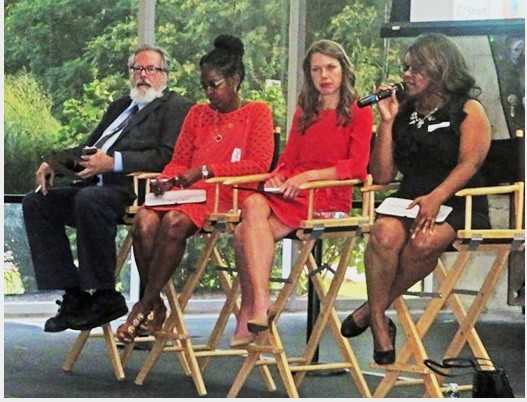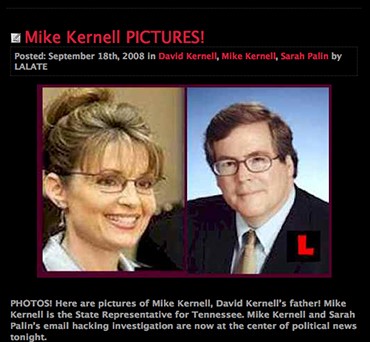Given the number of shootings in Memphis and Shelby County, issues of firearms are never very far from public consciousness. One matter of more than usual relevance to the subject was scheduled for consideration by the Shelby County Commission this week.
This is the matter of gun shows in the county. At intervals during the year, large exhibitions of weapons for sale are staged at Agricenter International in East Memphis — and are ballyhooed in advance on billboards.
As gun fanciers and area motorists must surely know by now, the next such gun show, a two-day affair, will be held at the Agricenter on December 14th and 15th. Current gun laws allow the sale of weapons on such occasions without the invoking of backgound checks or other regulations in effect at other venues selling weapons.
The existence of gun shows, therefore, is regarded by many as constituting a loophole in laws to control the sales of firearms.
 Shelbycountytn.gov
Shelbycountytn.gov
Tami Sawyer
If Shelby County Commissioner Tami Sawyer has her way, the Agricenter (aka the ShowPlace Arena) will soon cease to be a site that can be used for gun shows.
She is offering a resolution for discussion at Wednesday’s meeting of the body’s law enforcement committee requesting “that the administration decline the use of property owned and operated by Shelby County Government for purposes of hosting gun shows, effective January 1, 2020, with the exception of any contract already in place at the adoption of this resolution.”
Sawyer’s resolution notes that “from January 1, 2016 through November 1, 2019, a total of 4,449 weapons offenses (misdemeanor and felony) were reported in Memphis,” and the U.S. attorney for the Western District said that “in the first three quarters of 2018, Memphis and unincorporated parts of Shelby County reported 3,659 gun crimes.”
The attorney noted further that “the U.S. Attorney’s Office has established a multi-agency task force sting, Operation Bluff City Blues, to reduce gun crime and restore public safety in Memphis and Shelby County.”
By prior action of the commission, Shelby County owns an “operation and management” contract over use of the Agricenter and will do so until June 30, 2024, and therefore has the right and opportunity to control the building’s use.
Since “gun shows are the antithesis of promoting public safety and community peace and harmony,” and “promoters of gun shows have available to them adequate private facilities with which they could contract to conduct these activities, and, upon the example of the City of Knoxville, which has enacted similar legislation opposing the use of public arena space for gun shows,” Sawyer’s resolution seeks that “gun shows be banned on property owned and operated by Shelby County Government, effective January 1, 2020, with the exception of any contract already in place at the adoption of this resolution.”
Preliminary debate on the resolution is scheduled for this Wednesday, with further discussion and a vote on the measure expected on Monday, December 9th.
• The latest in a series of legal efforts to force a revamping of Shelby County’s voting procedures was brought before the Sixth Circuit Court of Appeals in Cincinnati this week, with an expedited hearing on whether a group of local plaintiffs have standing to file suit in the matter.
At stake in the suit is the issue of whether electronic voting per se can be relied on or whether Shelby County should return to conducting its elections by hand-marked paper ballots.
On behalf of themselves and other Shelby County voters, Carol Chumney, Mike Kernell, and Joe Weinberg were scheduled to appear in court on Tuesday, with Chumney presenting oral arguments.
This week’s hearing is a follow-up to previous legal efforts, including one that was rebuffed in October 2018 by U.S. District Judge Thomas Parker, who turned down a request for a temporary restraining order against the use of the county’s current voting machines for that year’s November elections.
Judge Parker declared that “the mechanism of elections is inherently a state and local function and federal courts should be cautious” and ruled that the plaintiffs lacked legal standing to sue regarding the matter.
The plaintiffs appealed and were ultimately granted this week’s hearing. Their suit alleges the touchscreen voting machines used by Shelby County are outdated, insecure, and unable to produce a voter-verifiable paper trail, and that a variety of other security mechanisms are necessary to prevent possible distortion of election results.
Weinberg, a long-familiar presence in local efforts to amend the county’s voting procedures, said the plaintiffs are seeking something beyond the possible introduction of “paper-trail” technology to append to the present Diebold voting machines or to any other computerized machines that might be acquired.
In a speech to the Kiwanis Club of Memphis in September, county Election Administrator Linda Phillips declared that Shelby County should be able to hold elections with paper-trail capabilities by August 2020. Phillips said the county is in the process of acquiring equipment that would make possible a process combining electronic scanning with paper trail records.
Plaintiff Weinberg said this week, however, that only a reversion to the use of hand-marked paper ballots would reliably limit potential abuse. “Basically, anything digital can be hacked, including ballot-marking devices or the scanner you might use with paper ballots.”
Phillips had said in September that there would be disadvantages to a return to voting by paper ballot alone.The chief problem, she said, would be the high rate of voter error. As an example, she said that “4 to 5 percent” of absentee ballots, which are executed on paper, contain some kind of error. She added, “How many elections can you recall in which the margin of victory was 5 percent or less?”
The failure of attempts to persuade local and state election officials to make voluntary changes made necessary the suit against the County and State Election Commissions, Weinberg said.
 JB
JB  JB
JB 

